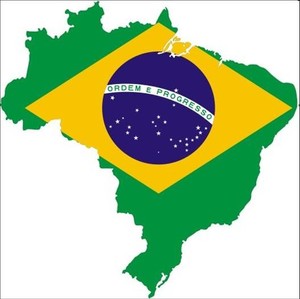Cancer is an epidemic disease in the 21st century. However, despite consistent increases on its incidence worldwide, mortality rates have fallen, especially in developed countries [1, 2]. The victories mankind has achieved in the war against cancer result from advances in different fields, such as early diagnosis and better surgical, radiotherapeutic and systemic treatments.
The advent of monoclonal antibodies represents one of the most important paradigm shifts in the treatment of cancer patients. The incorporation of these technologies brought great benefits to people’s lives in terms of increasing cure rates, survival and quality of life. Unfortunately, the great accomplishments brought by science into medicine come with high financial costs, making them available mainly for wealthy populations.
As patents on monoclonal antibodies have expired, biosimilars have been developed. With strict regulation from competent authorities, the introduction of these drugs into the market reduces costs and broadens the access to these medications throughout the world while still offering high quality products. The paper ‘Biosimilars in Brazil: the beginning of an era of broader access’ recently published in The Journal of Cancer therapy sheds some light on this theme. It gives a broad review that encompasses the definition of biological agents and biosimilars, the regulatory processes in different countries and the positive impacts of the insertion of these drugs in the context of the Brazilian health system [3].
Europe is the region of the world with the most experience with the use of biosimilars. Based on data that has been accumulated for more than 10 years, regulatory agencies report that monoclonal antibodies became more accessible to the population. There has been an absolute increase in the overall consumption of these drugs and cost reductions of about 30%, with no evidence of safety warnings or suboptimal efficacy. ANVISA, the Brazilian National Regulatory Agency, issued its first guideline for follow-on biological products approval in Brazil in 2010 [4]. Since then, no follow-on biological product has been approved and trastuzumab follow-on biological is expected to be the first one to be made available in Brazil, in 2018.
The Brazilian health system is divided into public and private sections. While approximately 75% of the population is assisted exclusively by the public health system, only 25% can afford to have health insurance. As is pointed out in the previously cited articles, trastuzumab consumption is more than 4 times higher in the private system than in the public [3]. However, budgetary constraints represent a major challenge in Brazil for both the public and the private systems and finding affordable ways to deliver high quality medications at lower prices is an urgent unmet need in this country. For instance, while the approximate per capita expenditure for health is U$9,590/year in the US, in Brazil it is US$1,554 and US$437 in the private and public health systems, respectively [5-7].
In this scenario, the incorporation of biosimilars should not be the movement of one industry for one molecule, but a new concept in health care that can change the sad reality of lack of access to high-cost medications in low and middle-income countries with the objective of opening a new era of broaden access.
Conflict of interest
The author of the review paper [3] did not provide any conflict of interest statement.
Abstracted by Professor Marcio Debiasi, MD, PhD,PUCRS School of Medicine, Scientific Director, LACOG – Breast Cancer and Translational Research Groups, Brazil
Related articles
Producing follow-on biological products in Brazil
Brazil approves first monoclonal antibody follow-on biological
References
1. Strasser-Weippl K, Chavarri-Guerra Y, Villarreal-Garza C, Bychkovsky BL, Debiasi M, Liedke PE, Soto-Perez-de-Celis E, Dizon D, Progress and remaining challenges for cancer control in Latin America and the Caribbean. Lancet Oncol. 2015;16(14):1405‑38.
2. Goss PE, Lee BL, Badovinac-Crnjevic T, Strasser-Weippl K, Chavarri-Guerra Y, St Louis J, Villarreal-Garza C, Unger-Saldaña K, et al. Planning cancer control in Latin America and the Caribbean. Lancet Oncol. 2013;14(5):391‑436.
3. Debiasi M, Fernandes Pimente F, Seadi Pereira PJ, Barrios CH. Biosimilars in Brazil: the beginning of an era of broader access. J Cancer Ther. 2017;8:814‑26.
4. GaBI Online - Generics and Biosimilars Initiative. Brazilian guidelines for follow-on biological products [www.gabionline.net]. Mol, Belgium: Pro Pharma Communications International; [cited 2018 Jan 5]. Available from: www.gabionline.net/Guidelines/Brazilian-guidelines-for-follow-on-biological-products
5. The World Bank. World Health Organization Global Health Expenditure database: Brazil Health expenditure, total (% of GDP) [homepage on the Internet]. [cited 2018 Jan 5]. Available from: https://data.worldbank.org/indicator/SH.XPD.TOTL.ZS?end=2014&locations=BR&start=1995
6. The World Bank. World Health Organization Global Health Expenditure database: United States Health expenditure, total (% of GDP) [homepage on the Internet]. [cited 2018 Jan 5]. Available from: https://data.worldbank.org/indicator/SH.XPD.PRIV.ZS?locations=US
7. Countrymeters. [População dos Estados Unidos da América]. Portuguese. [homepage on the Internet]. [cited 2017 Dec 8]. Available from: www.countrymeters.info/pt/United_States_of_America_(USA)
Permission granted to reproduce for personal and non-commercial use only. All other reproduction, copy or reprinting of all or part of any ‘Content’ found on this website is strictly prohibited without the prior consent of the publisher. Contact the publisher to obtain permission before redistributing.
Copyright – Unless otherwise stated all contents of this website are © 2018 Pro Pharma Communications International. All Rights Reserved.








 0
0











Post your comment